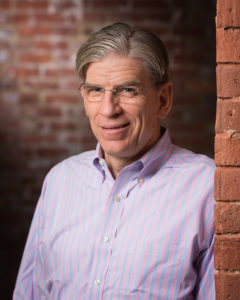 In The Undoing Project, Michael Lewis brings life to the friendship and working relationship between Daniel Kahneman and Amos Tversky. (Kahneman is still working – at Princeton. Unfortunately, Tversky has died.) Kahneman and Tversky were two smart guys. They thought differently about how people make judgments and decide. Their work changed economic and financial thinking. They forced economists to recognize that people are not purely rational thinkers. In fact, with most important financial decisions, people are not rational at all.
In The Undoing Project, Michael Lewis brings life to the friendship and working relationship between Daniel Kahneman and Amos Tversky. (Kahneman is still working – at Princeton. Unfortunately, Tversky has died.) Kahneman and Tversky were two smart guys. They thought differently about how people make judgments and decide. Their work changed economic and financial thinking. They forced economists to recognize that people are not purely rational thinkers. In fact, with most important financial decisions, people are not rational at all.
Kahneman and Tversky developed observations about situations where people make “irrational” decisions and judgments. These observations conflict with the rationality assumptions that economists have used for centuries. As a result, economists have had to change their models of how people behave in economic contexts.
I’ve written before about Thinking Fast and Slow (TFAS), Daniel Kahneman’s popular exposition of his work with Amos Tversky. Kahneman worked very hard to make this thinking accessible. If you enjoyed TFAS, you’ll enjoy this book. If you didn’t, there’s still hope – you may love this one.
In The Undoing Project, Michael Lewis brings life to Kahneman and Tversky’s friendship and working relationship. He shows that, just as in the case of Paul McCartney and John Lennon, one couldn’t say who contributed what to their joint work. He also makes clear that their relationship was torn apart by their interaction with the world, and inevitable disagreements about credit and recognition.
Kahneman and Tversky’s Legacy.
Kahneman and Tversky were also unusual human beings who lived fascinating lives. Lewis has found another great story, and he tells it extremely well. When I say that the book is a joint biography of two highly regarded academics, one of whom won the Nobel prize, you may think it’s a cure for insomnia. Instead, I promise you will find it hard to put the book down.
Along with the story of their relationship, Lewis provides a painless introduction to their work. You’ll learn about:
- Loss aversion – people are unhappier about a loss of a given size than they are happy about a gain of the same size.
- Anchoring – we use irrelevant quantitative information to estimate numbers we are otherwise ignorant about.
- Framing – people reach different conclusions based on different descriptions of the alternatives.
- Availability bias – people focus on the information that they have when making decisions, even when that information is incomplete or misleading.
Along the way, you’ll also learn about how:
- Doctors make different health care decisions for specific patients than they do for the broader population.
- People don’t understand probabilities well and make poor decisions where outcomes are not certain.
- The last few moments disproportionately color people’s memories of entire experiences.
You can use Kahneman and Tversky’s ideas in your life! They will show you how your natural habits of mind can mislead you. You will think differently about your financial plan and your investments, too.
It is rare to find a book that both educates and entertains. This is such a book.
